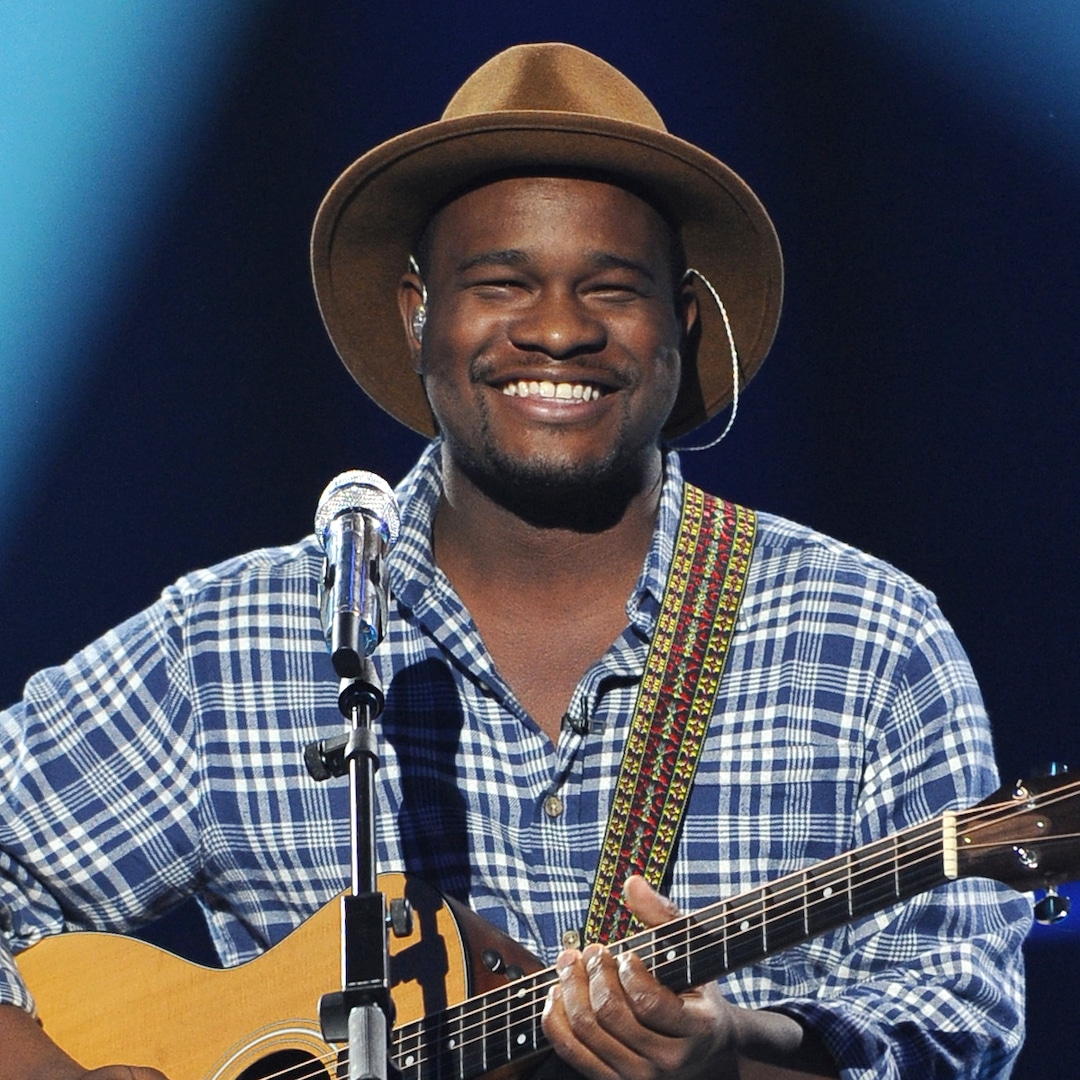American Idol Began In 2002: A Journey Through Pop Culture History
When American Idol began in 2002, it marked the start of a cultural phenomenon that would redefine music talent competitions and captivate audiences worldwide. The show quickly became a household name, launching the careers of numerous artists and influencing the entertainment industry for years to come. As one of the most successful reality TV shows in history, American Idol remains a cornerstone of pop culture.
From its humble beginnings to its current status as a long-running hit, American Idol has consistently delivered entertainment, drama, and inspiring moments. The show’s innovative format combined with its focus on discovering raw talent made it an instant hit. As the years passed, it evolved while staying true to its core mission: finding the next big star.
For millions of aspiring singers, American Idol became a platform to showcase their dreams and ambitions. The competition's intense yet uplifting environment has inspired countless individuals to pursue careers in music. In this article, we will delve into the origins of American Idol, its impact on the industry, and the legacy it has built since its debut in 2002.
Read also:Remote Iot Monitoring Via Ssh Download And Setup On Raspberry Pi
Table of Contents
- The History of American Idol
- How American Idol Began in 2002
- The Show's Format and Structure
- Judges and Their Role
- Notable Contestants and Winners
- American Idol's Impact on the Music Industry
- The Show's Popularity Over the Years
- Criticism and Controversies
- The Legacy of American Idol
- What's Next for American Idol?
The History of American Idol
American Idol began in 2002, but its roots trace back to a British show called "Pop Idol," which premiered in 2001. Created by Simon Fuller, the show was a massive hit in the UK, and its success prompted the development of an American version. American Idol quickly became a cultural juggernaut, airing its first season on June 11, 2002.
The show's initial format was relatively simple: aspiring singers auditioned in front of a panel of judges, and the public voted for their favorite contestants. This interactive element set it apart from other talent shows and made it a pioneer in the reality TV genre. Over the years, American Idol has undergone several changes, but its core premise remains the same: finding the next big singing star.
Evolution of the Show
As American Idol grew in popularity, the producers introduced new elements to keep the show fresh and engaging. These included:
- Live performances from renowned artists
- Themed weeks, such as "Motown Night" or "Disney Night"
- International guest judges and collaborations
How American Idol Began in 2002
When American Idol began in 2002, it was met with skepticism from some critics who doubted its potential to succeed. However, the show quickly proved them wrong, drawing massive audiences and generating widespread media attention. The first season featured a star-studded lineup of judges, including Paula Abdul, Randy Jackson, and Steven Tyler, who brought their unique perspectives to the competition.
The show's premiere coincided with a shift in the entertainment landscape, as reality TV was becoming increasingly popular. American Idol capitalized on this trend by offering viewers a behind-the-scenes look at the music industry and showcasing the struggles and triumphs of aspiring artists.
Key Figures in the Show's Creation
Several individuals played crucial roles in bringing American Idol to life:
Read also:Hannah Wow The Rising Star Redefining Pop Culture
- Simon Fuller: The creator and executive producer of the show.
- Fredric Yutkin: The president of Fox Entertainment during the show's early years.
- Nicki Salcedo: The casting director who helped discover many of the show's top talents.
The Show's Format and Structure
American Idol's format has remained largely consistent since it began in 2002. The competition typically consists of three main phases: auditions, the live shows, and the finale. Contestants must first pass through a series of auditions, where they perform in front of the judges in various cities across the United States.
Those who make it to the next round compete in the live shows, where their performances are broadcast to millions of viewers. The public votes for their favorite contestants, and the bottom performers are eliminated each week until a winner is crowned.
Changes in the Format Over Time
While the basic structure of American Idol has remained the same, the producers have made several adjustments to keep the show relevant. For example:
- Introducing wildcard rounds to give eliminated contestants a second chance.
- Expanding the audition process to include online submissions.
- Incorporating social media platforms for fan interaction and voting.
Judges and Their Role
The judges on American Idol have always been a key component of the show's success. Their feedback, critiques, and encouragement play a vital role in shaping the contestants' performances. Over the years, the judging panel has featured a diverse array of music industry professionals, including:
- Kelly Clarkson
- Randy Jackson
- Simon Cowell
- Rihanna
Each judge brings their unique perspective to the table, providing valuable insights and advice to the contestants. Their personalities and interactions with one another also add an extra layer of entertainment for viewers.
Notable Judges and Their Contributions
Some of the most memorable judges in American Idol history include:
- Simon Cowell: Known for his blunt honesty and sharp critiques.
- Paula Abdul: Celebrated for her kindness and constructive feedback.
- Randy Jackson: Renowned for his musical expertise and motivational approach.
Notable Contestants and Winners
Since American Idol began in 2002, it has launched the careers of numerous successful artists. Some of the most notable winners and finalists include:
- Kelly Clarkson: The first-ever winner of American Idol, who went on to become a global superstar.
- Carrie Underwood: A Season 4 winner who became one of the best-selling country artists of all time.
- Adam Lambert: A Season 8 finalist who gained international fame for his powerful vocals and dynamic performances.
These contestants, among others, have achieved remarkable success both in the music industry and beyond. Their stories serve as inspiration for aspiring artists everywhere.
Impact on Contestants' Careers
Winning American Idol can be a life-changing opportunity for contestants. Many have gone on to achieve critical acclaim and commercial success, thanks in part to the exposure they received on the show. However, the competition is fierce, and not all contestants achieve long-term success. Despite this, participating in American Idol often provides valuable experience and exposure for aspiring artists.
American Idol's Impact on the Music Industry
American Idol has had a profound impact on the music industry since it began in 2002. The show has introduced millions of viewers to new artists and genres, while also influencing the way talent is discovered and developed. By giving aspiring singers a platform to showcase their talents, American Idol has helped democratize the music industry and make it more accessible to a wider audience.
Additionally, the show has influenced other talent competitions, leading to the creation of similar programs around the world. Its innovative format and interactive elements have set a new standard for reality TV, paving the way for future shows in the genre.
Contributions to Music Education
American Idol has also played a role in promoting music education and supporting young artists. Through partnerships with organizations such as the American Idol Gives Back Foundation, the show has raised millions of dollars to support music programs in schools and communities across the United States.
The Show's Popularity Over the Years
Since its debut in 2002, American Idol has consistently ranked among the most popular TV shows in the United States. Its peak popularity occurred during the mid-2000s, when it regularly attracted over 30 million viewers per episode. While ratings have declined somewhat in recent years, the show remains a beloved staple of American television.
One reason for American Idol's enduring popularity is its ability to adapt to changing trends and technologies. By embracing social media and digital platforms, the show has managed to stay relevant in an increasingly competitive media landscape.
Factors Contributing to Its Success
Several factors have contributed to American Idol's long-term success:
- Engaging and relatable contestants
- Dynamic and charismatic judges
- Innovative format and interactive elements
Criticism and Controversies
Despite its widespread success, American Idol has not been without its share of criticism and controversies. Some critics argue that the show places too much emphasis on entertainment value at the expense of musical quality. Others have accused the producers of favoritism or manipulating the voting process to create more dramatic storylines.
However, the show's producers have consistently denied these claims, emphasizing their commitment to fairness and integrity. While some controversies have arisen over the years, they have not significantly impacted the show's popularity or success.
Addressing Criticism
To address criticism, the producers of American Idol have made several changes to the show's format and structure. For example:
- Introducing more diverse genres and styles of music.
- Incorporating feedback from viewers and industry experts.
- Enhancing transparency in the voting process.
The Legacy of American Idol
Since American Idol began in 2002, it has left an indelible mark on the entertainment industry and pop culture as a whole. The show has launched the careers of countless successful artists, influenced the way talent is discovered and developed, and provided millions of viewers with entertainment and inspiration.
Its legacy extends beyond the music industry, as it has also contributed to the rise of reality TV and interactive programming. By engaging viewers in the creative process and giving them a voice in the outcome, American Idol has set a new standard for audience participation in television.
Looking to the Future
As American Idol continues to evolve, its legacy will undoubtedly grow. The show's ability to adapt to changing trends and technologies ensures its relevance in an ever-changing media landscape. With its focus on discovering new talent and promoting music education, American Idol remains a vital force in the entertainment industry.
What's Next for American Idol?
As American Idol looks to the future, its producers have announced several exciting developments. These include:
- Expanding the show's reach to international markets.
- Incorporating new technologies, such as virtual reality and augmented reality, into the viewing experience.
- Continuing to support music education and community outreach programs.
With its rich history and enduring popularity, American Idol is poised to remain a cultural icon for years to come.
Kesimpulan
American Idol began in 2002 as a groundbreaking reality TV show that would go on to redefine the music industry and captivate audiences worldwide. Through its innovative format, engaging contestants, and dynamic judges, the show has become a cultural phenomenon that continues to inspire and entertain millions of viewers. Its impact on the entertainment industry and pop culture is undeniable, and its legacy will undoubtedly endure for generations to come.
We invite you to share your thoughts and experiences with American Idol in the comments below. Have you watched the show since it began in 2002? Who is your favorite contestant or judge? Let us know, and don't forget to explore our other articles for more insights into the world of entertainment!

